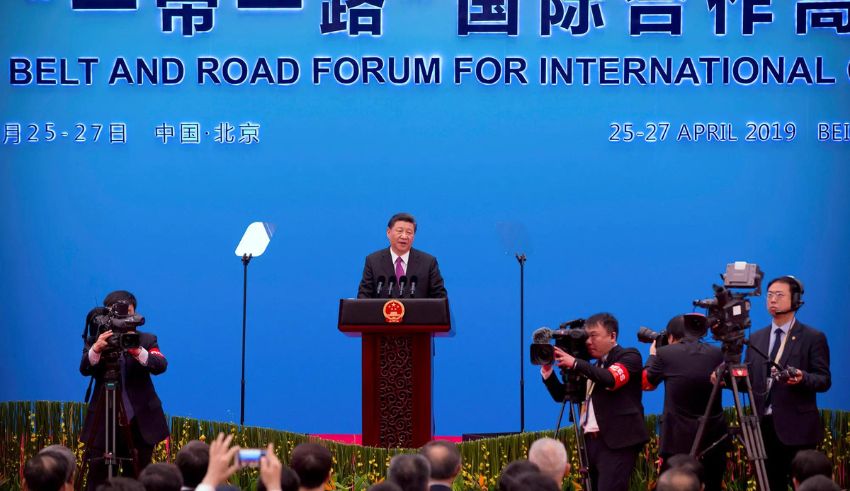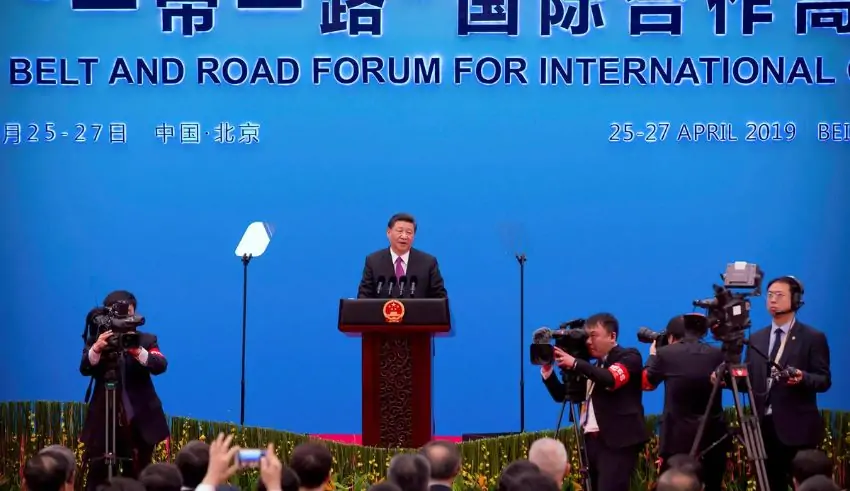

(C) VOA Learning English
Last updated on November 7th, 2023 at 09:46 pm
In a nuanced maneuver responding to recent South China Sea tensions, the Philippines subtly reevaluates its stance on Chinese-affiliated infrastructure projects, marking a pivotal shift within the complex world of the Belt and Road Initiative (BRI).
Amidst a backdrop of escalating events, the Philippines’ Department of Transportation discreetly unveils the “full termination” of significant infrastructure undertakings that were previously in collaboration with China. This unassuming recalibration underscores the intricate dynamics in the bilateral relationship and reflects the burgeoning concerns that shroud the BRI.
The setting for this pivotal decision is multi-layered. It stems from a recent collision between a Philippine vessel and a Chinese coast guard ship in the South China Sea. In parallel, China’s military has lodged allegations that a Philippine military vessel entered waters near Scarborough Shoal without the requisite permissions. This decision amplifies the ongoing discord between the Philippines and China concerning territorial disputes in the South China Sea.
The Philippines’ measured realignment also converges with the Grand Belt and Road Initiative Summit in Beijing, a platform where President Xi Jinping welcomed leaders and delegates from over 140 nations to commemorate the project’s decade-long journey. However, beneath the surface of the celebratory facades, the BRI faces growing apprehensions on a global scale.
While the Philippines’ withdrawal from these projects may appear relatively modest in scale, it signifies a significant juncture in the broader narrative revolving around China’s BRI. It sheds light on a multifaceted interplay of economic and geopolitical factors that have impelled the Philippines to reevaluate its current alignment with China.
China’s participation in the BRI has seen investments significantly lower than its decade-long average of $94 billion since the start of 2020, based on insights from the China Global Investment Tracker. A complex tapestry of factors contributes to this decline, encompassing China’s internal economic challenges and the specter of debt-related issues plaguing nations engaged in the initiative.
Italy, the lone G7 member intricately tied to the BRI, recently announced its intention to discontinue participation by year-end, citing unfulfilled project expectations. Furthermore, the BRI’s overall activities have waned by 40 percent from its zenith in 2018, primarily due to economic headwinds in China and the fiscal burdens that afflict participating countries.
Notably, a substantial number of countries benefitting from financial backing by China find themselves ensnared in considerable debt predicaments. Sri Lanka, a prominent case, finds itself trapped in a ceaseless cycle of Chinese pressures.
Dr. Jabin Jacob, Associate Professor in the Department of International Relations and Governance Studies at the Shiv Nadar Institution of Eminence, underscores the reevaluation undertaken by countries like Italy and the Philippines from a broader geopolitical perspective. Italy, for instance, grapples with the overarching European concerns regarding China’s economic policies, interventions in other countries’ domestic affairs, and technological sway.
The Philippines’ discreet yet momentous adjustment has the potential to set in motion repercussions across the global infrastructure investment landscape, significantly reshaping international partnerships, with ramifications that transcend its outwardly unpretentious scope.
OpenAI updated ChatGPT-4o to include its best text-to-image tools so free users can generate Studio Ghibli artwork by giving basic…
The stepping down of Piyush Gupta from the post of CEO of DBS Bank came after 15 years of leading…
The Delhi Directorate of Education releases 2025-26 marks for year-end tests in school levels 6 through 11. Online test data…
Singapore will further cement its status as an important basketball destination when it hosts three FIBA 3x3 events in 2026…
Jewel Section E, directed by Theodore Boborol and starring Ashtine Olviga as Jay-Jay Mariano, Andres Muhlach as Mark Keifer Watson,…
Cebu Pacific celebrates the delivery of its very first aircraft for 2025, the 459-seat Airbus A330neo, delivered at Ninoy Aquino…
This website uses cookies.
Read More